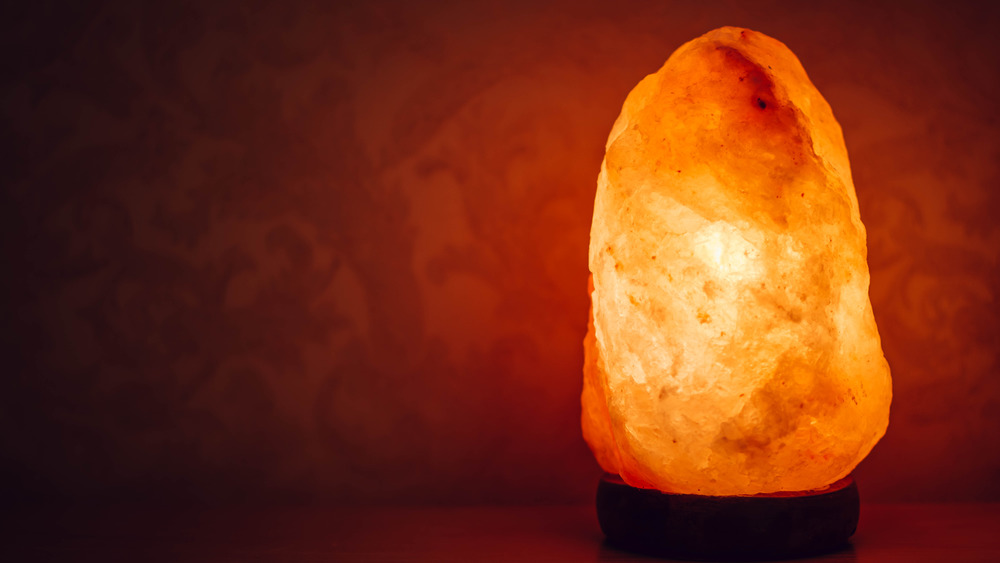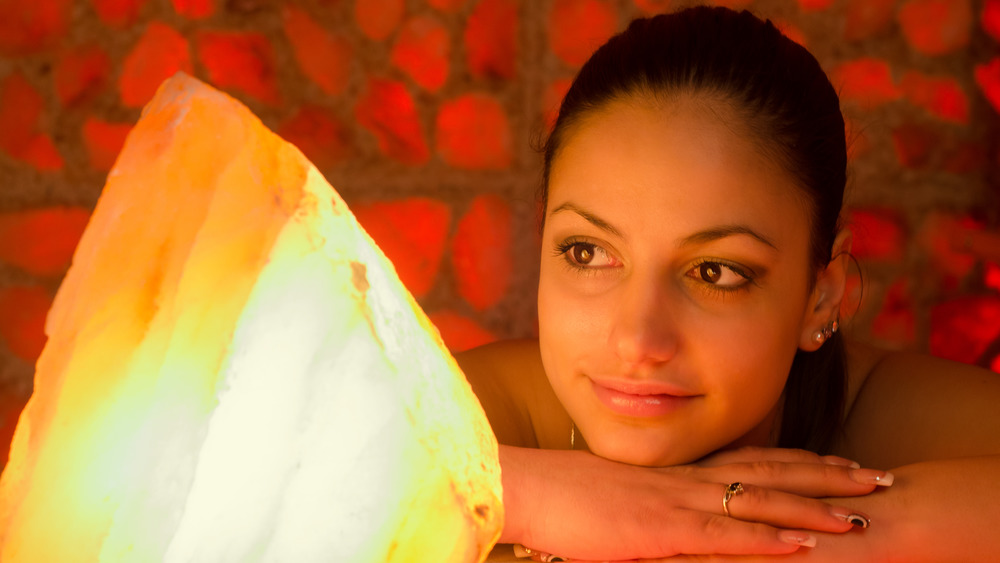Are Salt Lamps Really Good For You?
It's hard not to find some stillness and peace while watching the soft amber glow of a Himalayan salt lamp. These lamps have been popping up all over social media over the past few years and aside from being aesthetically pleasing, claim to pack some serious health benefits too. But is there really more than meets the eye with these lamps?
While not widely practiced in the United States, Europeans have been raving about the healing properties of natural salt caves for centuries. Speleotherapy refers to the practice of inhalation in a natural salt cave or mine environment to treat common chronic airway and inflammatory diseases such as asthma and allergies (via Journal of Clinical Medicine). Some of the defining characteristics of the "microclimates" within the caves are the absence of pollutants and allergens, stable temperatures, slow air motion, and more.
Environmental salt caves are not a natural occurrence here in the US like they are in parts of Europe and Asia, but the number of artificially made "caves" is growing by the year. However, for people looking to try out even the most basic form of salt therapy, purchasing one of those pretty lamps seems like the easiest place to start.
There are several very appealing claims people and companies make regarding the use of salt lamps ranging from purifying your surrounding air to improving your quality of sleep (via WebMD). While they sound promising, the truth is there is no substantial scientific evidence that salt lamps will do what they claim to. Let's dissect some of the most common claims.
The evidence for salt lamp benefits just isn't there
In terms of purifying the air, this claim comes from the fact that salt is a natural ionizer (via Well + Good). This means that it tends to attract allergens, pollutants, and bacteria, and then changes the chemical charge. This ionization process then causes the unfavorable pollutants to fall to the ground, clearing the air. In fact, many commercial air purifiers also come with ionizing capabilities, which anecdotally people say makes the air feel crisper. This also lends itself to the claims that salt lamps can help people with chronic breathing issues like asthma or allergies. The scientific evidence, however, to substantiate these claims and to verify the actual purifying effect of salt lamps remains generally unfounded and is lacking.
The same holds true for the claims that salt lamps will improve your sleep quality. It remains largely unclear where this claim gets its backbone from as there have been no studies to date examining Himalayan salt lamps and sleep quality (via Healthline). One point that may lend itself to promoting sleep could be if you replace a bright blue light-emitting lamp with the soft warm glow of a salt lamp. Otherwise, this claim can be, well, put to bed — pun very intended.
The bottom line remains, a salt lamp may fit your room's décor well, but don't expect it to be the miracle product that will cure your chronic ailments.


